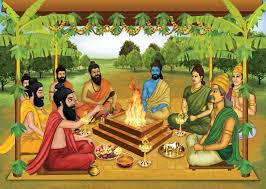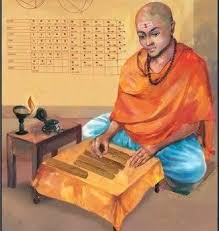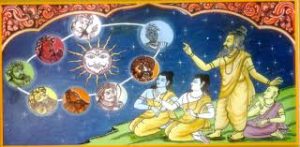In Indian Vedic Jyotish, the qualifications of a good astrologer go beyond technical skills. It requires a blend of spiritual, intellectual, and ethical traits that enable them to accurately interpret celestial patterns while guiding individuals with wisdom and compassion. Here’s a structured explanation of these qualifications, along with examples:
- 1. Profound Knowledge of Vedic Astrology
- 2. Spiritual Awareness and Wisdom
- 3. Ethical and Compassionate Approach
- 4. Strong Analytical Skills
- 5. Ability to Communicate Effectively
- 6. Dedication to Continuous Learning
- 7. Practical Knowledge of Remedies
- 8. Intuition and Spiritual Sensitivity
- 9. Patience and Humility
- 10. Cultural and Contextual Sensitivity
- Conclusion:
1. Profound Knowledge of Vedic Astrology
A good astrologer must have a deep understanding of foundational concepts like planetary influences, houses, aspects, nakshatras, dashas (planetary periods), and remedies.
- Example: If Rahu is placed in the 7th house in an individual’s chart, an expert astrologer will recognize the potential challenges in relationships and suggest specific remedies, such as chanting Rahu-related mantras, fasting on Saturdays, or wearing gemstones.
2. Spiritual Awareness and Wisdom
An astrologer should be spiritually inclined, as astrology is rooted in dharma (righteousness) and karma. This awareness allows them to offer guidance that aligns with the spiritual growth of the individual.
- Example: When interpreting Ketu in the 12th house, a spiritually wise astrologer will advise the native on developing detachment and exploring paths to moksha (liberation), rather than emphasizing material losses.
3. Ethical and Compassionate Approach
Astrologers must prioritize ethics, avoiding fear-mongering or exploitation. They should present interpretations with empathy, focusing on solutions and positivity rather than doom.
- Example: If a debilitated Saturn signifies delays or hardships, a compassionate astrologer will emphasize remedies (like Saturn-friendly charities or chanting Mahamrityunjaya Mantra) to overcome challenges, instead of instilling unnecessary fear.
4. Strong Analytical Skills
Astrology requires critical thinking and logical analysis to interpret complex charts accurately.
- Example: An astrologer analyzing a chart with multiple planetary conjunctions (e.g., Sun, Saturn, and Mercury in the 10th house) should use their analytical skills to understand the interplay of energies, predict career outcomes, and suggest focused remedies.
5. Ability to Communicate Effectively
Clear and structured communication ensures the seeker understands the predictions and remedies, fostering trust and confidence.
- Example: When advising remedies for marital harmony (e.g., Venus remedies for the 7th house), a skilled astrologer will explain the rationale behind the suggestions to help the seeker follow them with conviction.
6. Dedication to Continuous Learning
Astrology is a vast and evolving science. A good astrologer continuously deepens their knowledge by studying scriptures (like Brihat Parashara Hora Shastra) and contemporary insights.
- Example: Astrologers who expand their knowledge by exploring texts like Jaimini Sutras gain advanced techniques to interpret complex karmic patterns.
7. Practical Knowledge of Remedies
A qualified astrologer should be proficient in suggesting practical and effective remedies, such as gemstones, mantra chanting, fasting, rituals, and charitable acts.
- Example: If the Moon is afflicted in the chart, they might suggest wearing a Pearl, meditating, or engaging in donations related to food to strengthen the emotional and mental health of the native.
8. Intuition and Spiritual Sensitivity
Good astrologers often develop a refined intuition that complements their technical skills, helping them offer personalized and insightful guidance.
- Example: While analyzing a chart with a debilitated Mars, an intuitive astrologer might sense underlying anger issues in the native and suggest meditation or martial arts to channel energy productively.
9. Patience and Humility
Astrologers must practice humility, knowing astrology is not about absolute control but understanding cosmic patterns. Patience is equally vital as interpreting charts and guiding individuals often involves complex processes.
- Example: When predicting slow progress due to karmic debts, a humble astrologer reassures the native to stay committed to remedies and personal growth over time.
10. Cultural and Contextual Sensitivity
Astrologers must consider the seeker’s background, beliefs, and aspirations to provide guidance tailored to their context.
- Example: For someone whose career involves creativity (e.g., Venus in the 10th house), an astrologer might suggest focusing on artistic pursuits while aligning with specific planetary remedies.
Conclusion:
A good astrologer is more than a technical expert—they are a guide who bridges spiritual wisdom with practical insights to empower seekers. Their qualifications encompass profound knowledge, ethical conduct, communication skills, spiritual wisdom, and intuition. Always ensure to consult qualified professionals for accurate and meaningful guidance.




